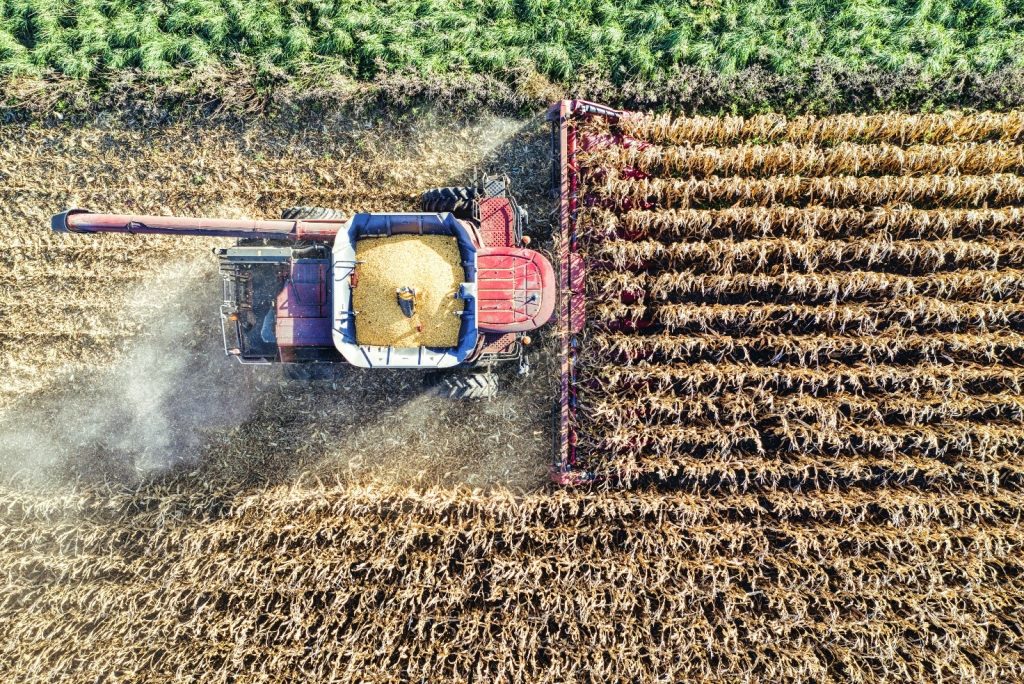The Best storage tips for agriculture workers
Almost every business needs storage space for materials, stock, and equipment. For larger operations, this might mean entire properties dedicated to storing seasonal items whereas for smaller businesses this might just mean tools and consumables.
Whatever you need to run your business, you want to ensure that you are storing it appropriately. From corn to combine harvesters, improper storage can cause damage, so it’s important to know what is needed and ensure that you check the specifications of any storage solution you consider.
Farming storage
So much of farming involves having the things that you need on hand so that you can make the most of good weather and minimize the risks posed by bad weather. Of course, there are many different storage requirements depending on the types of farm, and these can include:
Vehicles and Machinery

While these are designed to survive some degree of exposure to the weather, farm machinery lasts the longest if it has some protection from the worst of the weather. There are plenty of different models to choose from to suit your needs, such as a Quonset hut barn designed to be used in areas that regularly experience heavy snow.
It’s also important to consider where everything will be kept when it’s not in use – expensive equipment needs to be stored properly to prevent damage. Secure storage is also important for high-value items that could be targeted by thieves.
Farm consumables
From hay and straw to food and medicine, pastoral farming requires a lot of storage space just for the basics that the animals need to keep them healthy. The space needed by the animals themselves also contributes to the overall footprint of the farm with specially designed barns and other enclosures that make caring for the animals much easier.
In arable farms, storage is required for seeds and other plants, as well as soil improvers, irrigation systems, and harvesting equipment. Having these items on hand makes it easy to take advantage of good conditions to maximize the potential of each crop.
Produce
Many farms have self-sustaining elements and mixed farms may use the straw from their crops as bedding for animals or as an addition to the soil. Others may grow food items for their animal which need to be stored correctly to maximize the lifespan of the harvest.
For farms that need to store items that are going to be commercially packaged off-site, it is important to ensure that optimum conditions are provided to minimize spoilage and retain as much nutritional benefit as possible. There are safety and hygiene standards associated with all products and rigorous standards for the equipment used to prepare it and the environment in which it’s stored.
For specialist farms
While there are plenty of big farms using lots of equipment and space, there are also plenty of smaller operations that have special storage requirements. From grow rooms in which to nurture more delicate crops to custom-built whiskey stills, getting your storage right can be a big part of your business.
From all-in-one workspaces and storage areas to purpose-built storage facilities, farms rely on storing things safely and securely.
Regulatory requirements
Depending on the items being stored, there may be regulatory requirements. This is true for hazardous materials including some pesticides and herbicides, as well as for items that are set to be consumed by the general public.
These should be at the forefront of any storage decisions and it’s important to ensure that any changes to your storage arrangements are up to code. The results of not following code can be detrimental to the business, either as a whole of financially. It is not a risk worth taking.
Outbuildings, silos, stables, barns, and containers can all be used to store farming essentials, but there are some other things to consider.
- Typical weather conditions
- Frequency of use
- Temperature conditions
- Humidity
- Ventilation
- Access requirements
From off-the-shelf solutions to common storage problems to custom-built storage for specialists, getting it right can make a huge difference to a farm’s bottom line. Being in the agricultural business is hard enough due to the changes in temperature and weather patterns. It is best not to add any further implications like poor storage become a negative factor.

